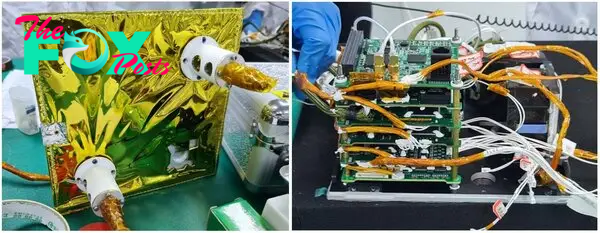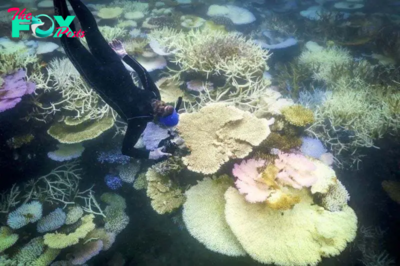Technology
Pakistan’s historic lunar mission to be launched on Friday
Pakistan is set to embark on a ground-breaking lunar mission, as the country's historic ICUBE-Q satellite prepares for launch on Friday. The satellite will be carried aboard China's Chang'E6 spacecraft, scheduled to depart from Hainan, China, at 1250 PST.
According to the Institute of Space Technology (IST), the satellite ICUBE-Q has been designed and developed by IST in collaboration with China’s Shanghai University SJTU and Pakistan’s national space agency SUPARCO.
ICUBE-Q orbiter carries two optical cameras to image the lunar surface. Following successful qualification and testing, ICUBE-Q has now been integrated with the Chang’e6 mission. Chang’e6 is the sixth in a series of China’s lunar exploration missions.
The launch activity will be telecast live on the IST website and social media platforms. Chang’6 will touch down on the moon’s far side to collect samples from the surface and return to Earth for research.

The mission holds significance for Pakistan as it will also take a Pakistan CubeSat Satellite iCube-Q, developed by IST.
CubeSats are miniature satellites typically characterised by their small size and standardised design. They are constructed in a cubic shape, consisting of modular components that adhere to specific size constraints.
These satellites often weigh no more than a few kilogrammes and are deployed in space for various purposes.
Read more: Shooting for the moon: Pakistan's lunar ambitions
The primary purpose of cubesats is to facilitate scientific research, Technology development, and Educational initiatives in space exploration.
These satellites are utilised for a wide range of missions, including Earth observations, remote sensing, atmospheric research, communications, Astronomy, and Technology demonstration.
Due to their compact size and relatively low cost compared to traditional satellites, CubeSats offer opportunities for universities, research institutions, and commercial entities to participate in space missions and gather valuable data for scientific advancement and innovation.
They serve as platforms for testing new technologies and concepts, enabling access to space for a broader range of users and promoting collaboration within the space community.
-

 Technology1h ago
Technology1h agoWhy a Technocracy Fails Young People
-

 Technology13h ago
Technology13h agoTransplanting insulin-making cells to treat Type 1 diabetes is challenging − but stem cells offer a potential improvement
-

 Technology19h ago
Technology19h agoShould I worry about mold growing in my home?
-

 Technology19h ago
Technology19h agoBlurry, morphing and surreal – a new AI aesthetic is emerging in film
-

 Technology1d ago
Technology1d agoSpaceX’s Starship advances in spaceflight despite booster landing failure | The Express Tribune
-

 Technology1d ago
Technology1d agoGreat Barrier Reef faces 'significant coral deaths' following recent climate events | The Express Tribune
-

 Technology1d ago
Technology1d agoMeta to challenge India's data-sharing restrictions between WhatsApp, other apps | The Express Tribune
-

 Technology1d ago
Technology1d agoMerlin inks £85m deal to bring Minecraft attractions to UK, US parks by 2026-2027 | The Express Tribune

















